In this article, we learn how the Maasai community has worked with the Big Life Foundation to establish the Maasai Olympics. And we see how this has had a profound impact, not only on lion conservation, but also on community empowerment.
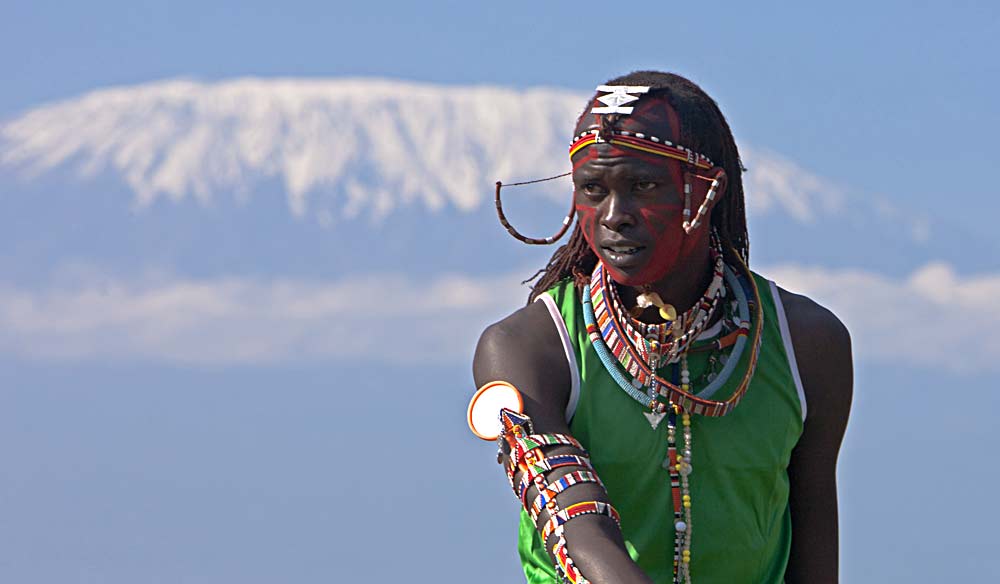
A decade ago, a deputation of Maasai elders strode onto the ranch of a well-known conservationist. Draped in their traditional scarlet cloaks and bearing the traditional tokens of their office, it was clear that they wanted to talk. An acacia tree was chosen and, as according to custom, a meeting was held in its shade. On one side sat the elders, on the other a team from the non-profit conservation organization, Big Life Foundation. When the formal greetings were over, an announcement was made. The elders wished, they said, to end the practice of lion hunting amongst their young men. There was a stunned silence. This was unheard of.
Becoming a warrior
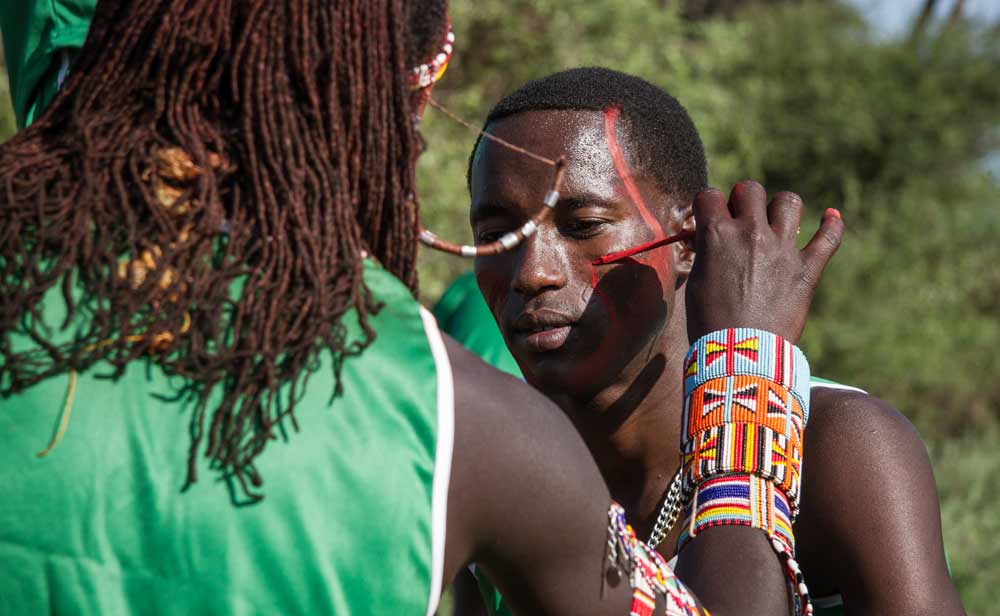
The Maasai had been hunting lions since the dawn of time. No young man could truly be considered a warrior until he had killed a lion. Furthermore, no Maasai maiden would give a second glance to one whose manhood had not been thus proven. For the conservationists, the announcement made magnificent news but it begged a rather large question: what could possibly replace lion hunting in the eyes of the warriors of this most traditional of cultures? The elders had thought this through. ‘Elsewhere in the world’, said one with elegant simplicity, ‘is it not true that boys compete for girls through sport?’ Bulls-eye: he had it in one: the Maasai Olympics sprang into life.
The first Maasai Olympics
The first event, organized by Big Life Foundation, took place in 2012 and involved thousands of young men from the Amboseli/Tsavo ecosystem. They competed against each other in the traditional Maasai pursuits of running, spear throwing and jumping from a standing position. Prizes included educational scholarships, the chance to compete in the New York Marathon and, most alluring of all, a prize breeding bull.
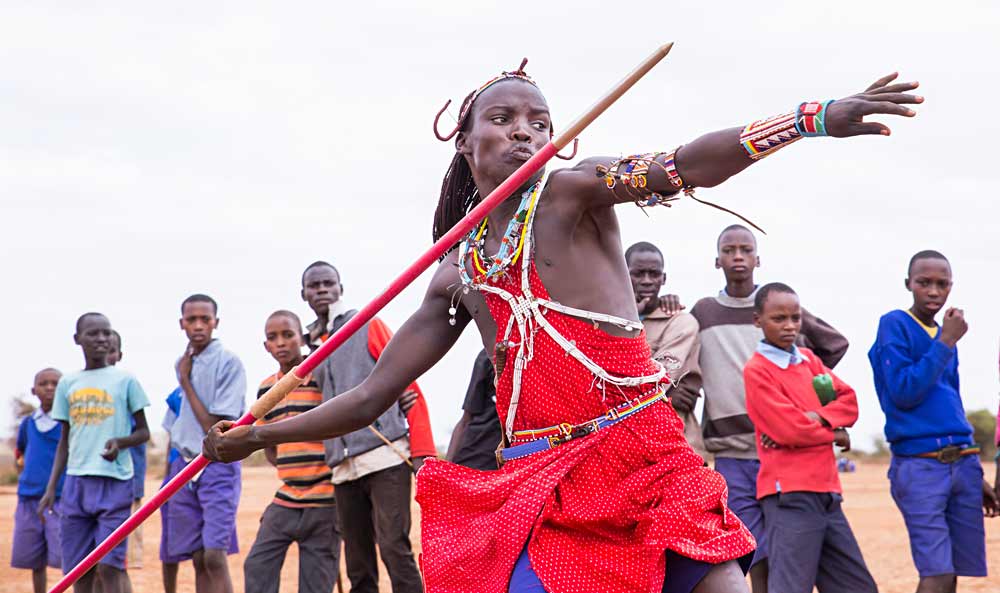
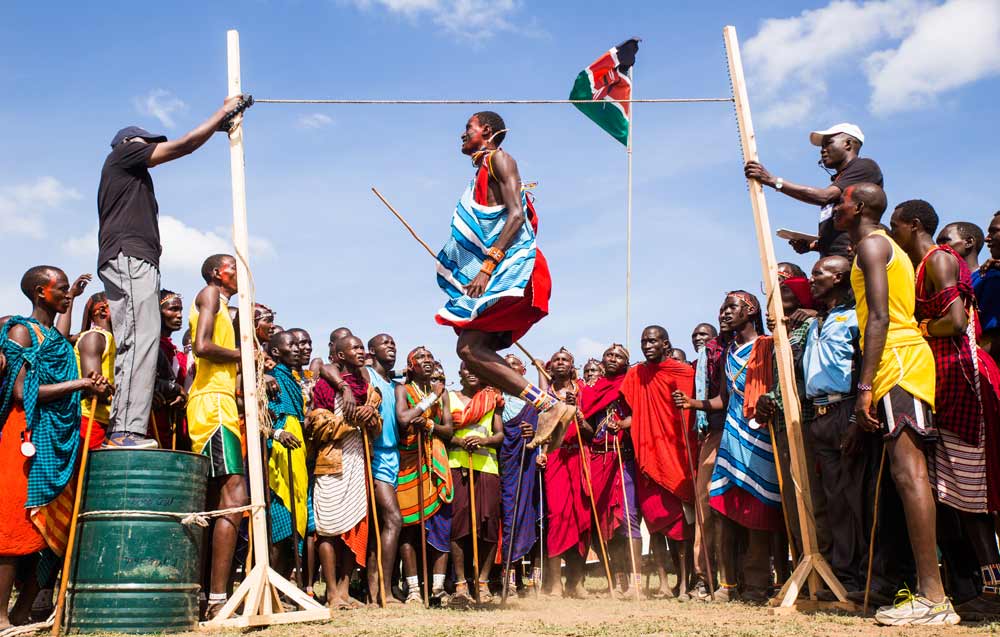
It was a huge success
The event was an unqualified success, not only as a conservation and cultural game-changer, but also as a photographic extravaganza. The spears flew, the runners pounded and the jumpers soared while the air vibrated with the low, throaty, chanting of the spectators. Meanwhile, toned to perfection, intricate of hairdo and glorious of face-paint, the triumphant Olympians strutted and preened before the ranks of brilliantly attired maidens. The response was electric: they screamed in the Maasai equivalent of Beatle-mania. The point was brilliantly made. You don’t need to kill a lion to get your girl: but you do have to protect your lion to get where you want to go.
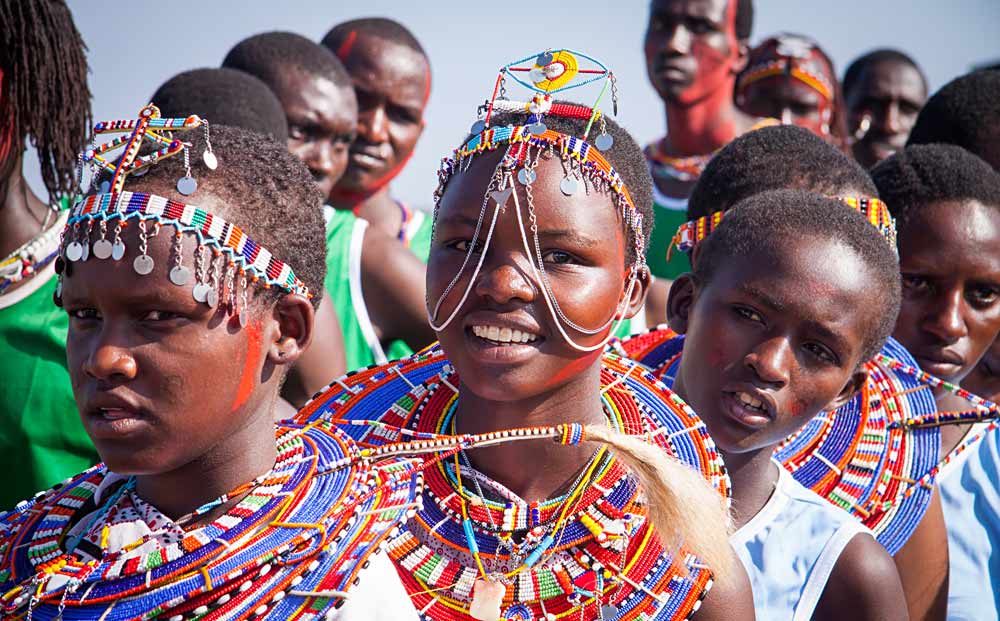
‘Why would I kill a lion?’ asked one young warrior. ‘The tourists come to see that lion and the revenue from tourism can pay for school fees.’ Another winner, carried shoulder-high by his chanting age-mates, said: ‘David Rudisha didn’t become famous because he killed a lion, but because he’s a world-class runner’. With a medal on a ribbon around his neck, a prize bull on the end of a rope, and a phalanx of admirers at his back, another young man sashayed away into the savannah as if he was leading a conga line. We’re going to dance all the way back to the manyatta,’ he said.
How the Maasai Olympics work
The Maasai Olympics are a bi-annual event and will next take place in 2020. All over Maasailand, heats are already being held to determine who will represent their village. Coaches are being selected; teams are being trained. Six regional competitions will be held from July to October until, in December, the final climax of ‘Olympics Day’ will take place. And spectators are welcome at each and every event.
But it’s not ALL about the sport. At every meeting workshops are held and insights are offered as to the crucial role the Maasai community plays in the conservation of nature. And, vice versa: how by protecting the wildlife, the Maasai empower themselves.
Thanks to the Maasai Olympics the lions are thriving
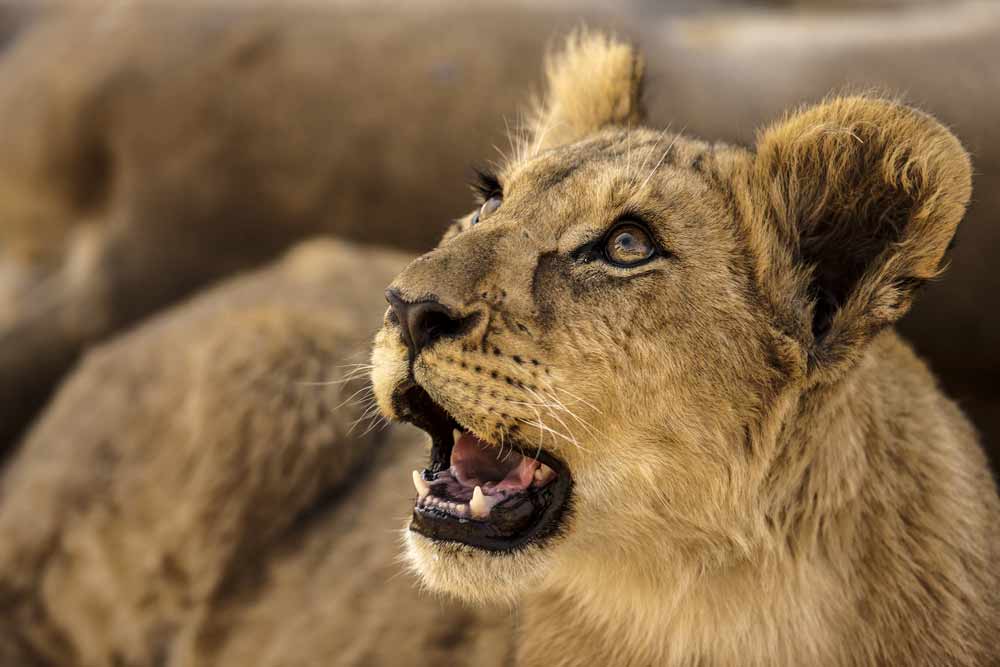
As for the lions, they’re thriving. Now that the shadow of the spear no longer hangs over them, they’ve come to accept the presence of humans with little more than a whisk of a tail. Consequently lion watching doesn’t get much better than in Kenya and tourism numbers are rising. As for the warriors, they’re putting millennia of lion-tracking skills to good purpose: they make the finest guides in Africa.
About the Big Life Foundation
Big Life was co-founded in September 2010. It bases its philosophy on the fact that sustainable conservation can only be achieved through a community-based collaborative approach. Today, Big Life employs hundreds of local Maasai rangers. It also has more than 40 permanent outposts and tent-based field units, 13 vehicles, tracker dogs, and an aerial surveillance unit—all protecting 2 million acres of wilderness in the Amboseli-Tsavo-Kilimanjaro ecosystem. Big Life is funded by donations. For more information, visit: https://biglife.org/
If you’d like to attend the Maasai Olympics or make a donation, contact: info@biglife.org
© 2025 Kenya Holidays
